We’ve all heard it a million times: “There aren’t enough hours in the day.” Time management has long been heralded as the solution to our increasingly busy lives. But what if the real challenge isn’t managing our minutes and hours? What if the key lies in reframing our perspective, shifting from a narrow focus on time to a holistic approach that encompasses all our resources? Join us as we explore the overlooked dimensions of productivity and unveil strategies that extend beyond the confines of a ticking clock. Dive deep into understanding the real resources you should be managing, and discover how a comprehensive approach can lead to a more balanced, fulfilled life. Welcome to a new era of resource mastery. 🕰️➡️💡
About the Author
In her previous career as a university-level writing instructor, Dr. Stephanie Weaver taught hundreds of first-year college students not just about citations and sentence structure but also about how writing gets done. She’s passionate about helping people find the writing practices and strategies that work for them to accomplish their writing goals.
Willpower Management: Doing the Things You Wish You Weren’t Doing
In my last post, I talked about identifying the trends in your energy cycle and rearranging your work to make the most of those high energy/focus times in your day. In this post, we’re moving onto the second component for reframing time management: willpower management.
When we talk about willpower in western culture, it’s usually in the context of self-discipline and it can take on puritanical and shaming overtones pretty quickly — having the willpower to exercise every morning, having the willpower to resist eating cake, having the willpower to only drink one beer when you go out to happy hour, and so on.
We tend to see willpower as a muscle — if you exercise it by saying no to bad things and yes to good things, it will get stronger. But that metaphor ignores that muscles have limits, even if they are regularly exercised. You may have strong biceps that can regularly lift 20-pound dumbbells 50 times without fail, but if you ask those same biceps to lift 50-pound dumbbells, they aren’t going to be able to do it as many times.
Willpower is the same way — it’s a finite resource. We can exercise it in certain areas so that certain tasks become easier, but that doesn’t change the fact that you’re only going to be able to say no to bad things and yes to good things so many times before you need a rest to continue the good fight.
How much willpower different kinds of tasks cost varies from person to person. I mentioned in my last post that I’m a night owl, so the amount of willpower it takes me to get out of bed at 7 am is more than it takes for a morning lark to do the same thing. I have a lot of anxiety around phone calls (because I’m a millennial and because I sometimes have difficulty with auditory processing) so making a phone call is a big chunk of willpower. In fact, I have a max of about two phone calls a day. On the other hand, tasks that might take other people quite a bit of willpower are relatively easy for me. I’ve started so many first drafts in my career as a teacher of writing and as a professional writer that it’s relatively low effort to open a blank document and start typing.
Here’s a few ways to get started thinking about your own willpower management:
1. Take some time to observe how difficult different tasks seem to be for you. Over the course of a week, take a few moments to jot down the tasks that you do and rate it on how easy it was to get started. If you just did the thing without really putting much thought into it, you could label it “easy” or give it a 1. If you dragged your feet a little or spent a few minutes scrolling social media before finally getting down to it, you could give it a 2 or call it “medium.” If you watched that task on your list all day knowing that eventually you’d have to get to work on it and dreading that moment, that’s a “hard” or a 3. After a week or so, try to find some patterns in what tasks seemed to be hardest to do and which ones seemed easy. Maybe you find that the first step in a big project – like starting a new grant application – is really hard, but the next time you needed to work on it, it was easy to get going. Or maybe certain categories of tasks, like sending emails or doing research, are difficult to get started.
2. Schedule high willpower tasks at high energy times. Figuring out which routine tasks cost you a lot of willpower (hello, phone call to request a meeting with a potential funder) and which tasks are relatively low in their willpower cost can help you in scheduling things to maximize your time and energy while mitigating fatigue and burnout. So when I’m deciding what tasks need to be placed during my “Golden Work Time” at the start of the day, I’m looking for tasks that require high focus and/or tasks that have high willpower costs, because if those high-cost tasks get left until the end of the day, they are not getting done. I leave low willpower tasks for later in the day, because they are still going to get done even if it’s almost time to wrap up.
3. Outsource your willpower needs. If you’re better at staying on task at a coffee shop or in a co-working session, it’s likely because the peer pressure presented by those environments lowers the willpower cost to you. If there’s a draft you know you need to work on but you’ve been putting off, leaving the document open so it’s on your computer first thing lowers the willpower cost of actually opening it the next day — it’s basically the same hack as sleeping in your workout clothes. I learned long ago that I’m a lot less likely to eat ice cream if I don’t keep ice cream in the house; having to actually get up and go out for ice cream lowers the willpower cost of saying no (and if I want the ice cream that much, I probably deserve it).
4. Cheer yourself on. It’s perfectly fine to give yourself a little pat on the back for doing something that seems incredibly easy for most people if it’s something that’s difficult for you. In fact, I often give myself a little “Look at you go!” speech after a phone call I’ve been dreading.
As you’re figuring out your own willpower needs, the most important thing to keep in mind is that you’re just observing, not evaluating or judging. Don’t try to compare your willpower limits to other people’s or even to what you think they should be. After all, the first step to managing your resources is being realistic about what you have.

Dive into our “Write Your Grant in One Hour Using AI” course. It’s packed with video tutorials, a digital workbook, and a cheatsheet to guide you through the AI-driven grant writing process. 🎓
Don’t miss out on this chance to stay at the forefront of grant writing and harness the power of AI to enhance your grant writing process.






